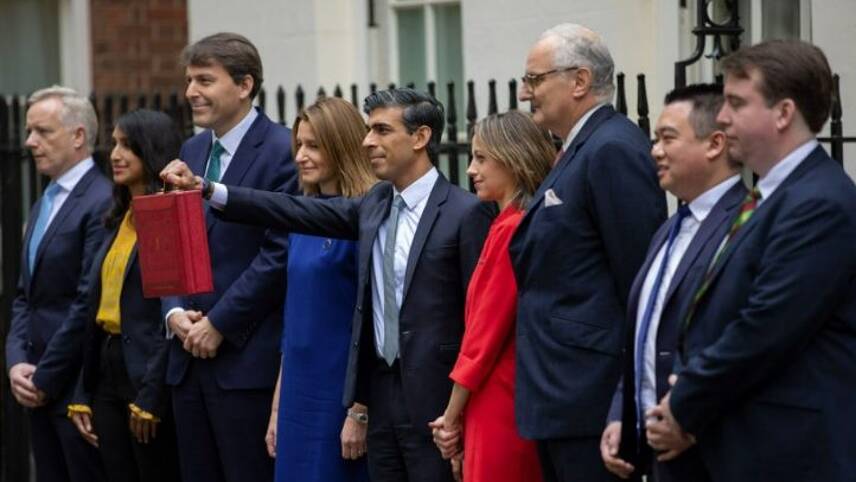Register for free and continue reading
Join our growing army of changemakers and get unlimited access to our premium content

Image: HM Treasury. CC BY-NC-ND 2.0
The NGO has today (28 January) published the findings of a study in which it applied its net-zero stress test to each of the measures announced by Sunak in his speech on 27 October 2021.
By WWF’s calculations, the package included £55bn of backing for policies that will ultimately push up the UK’s emissions in the short term. Policy changes that proved unpopular with the green economy included cuts to air passenger duty (APD) for domestic flights, a further freeze on fuel duty and a reaffirmed commitment to a multi-billion-pound roads building programme.
These policies, even when offset by the policies which will cause emissions cuts elsewhere, will ultimately result in an extra 38.4 million tonnes of CO2e being generated in the UK by 2026, WWF has stated. For context, the UK’s total annual emissions in 2019 were around 455 million tonnes of CO2e.
WWF has stated that the measures announced in October 2021 do, when combined, have the possibility to contribute to a long-term reduction in emissions. It has forecast that, if future spending packages are net-zero aligned, savings of 745 million tonnes of CO2e will be generated over a 25-year period.
Positive policies announced by Sunak include tax breaks for ships using low-carbon fuels, £1.5bn of new funding for public and active transport and £9m for the creation of green spaces in urban areas.
Nonetheless, this reduction remains out-of-kilter with the UK’s 2050 net-zero pledge, provided that the UK delivers the low-carbon transition in line with the recommendations of the government’s own advisory body the Climate Change Committee (CCC).
WWF’s head of climate change Isabella O’Dowd said the package was, overall, “a missed opportunity to prioritise the deep, rapid emissions cuts we urgently need”.
“Investing to cut emissions as quickly as possible is also cost-effective, reducing our reliance on volatile fossil fuels, creating green jobs and increasing the UK’s resilience to the physical and economic impacts of climate change,” O’Dowd said, arguing that, at present, the Government’s approach “risks relying on technologies of the future”, which will ultimately push the costs of the transition higher.
WWF has long been calling for the UK Government to apply a net-zero stress test to all major financial announcements. This approach is also being promoted by organisations including the Institute for Government (IfG) and Policy Connect.
The IfG this month published a new series of recommendations for putting in place the foundations this year for the UK’s net-zero transition in the years and decades to come. It warned that, unless the Government can get the general public on side in the context of the energy price crisis, it will risk failing to deliver the emissions cuts needed.
After that report was published, edie’s content editor Matt Mace penned a new blog on how arguments around the cost of reaching net-zero, bolstered by inadequate just transition approach from the government and the private sector, are breeding public distrust in the low-carbon agenda. You can read that blog here.
Sarah George


Please login or Register to leave a comment.